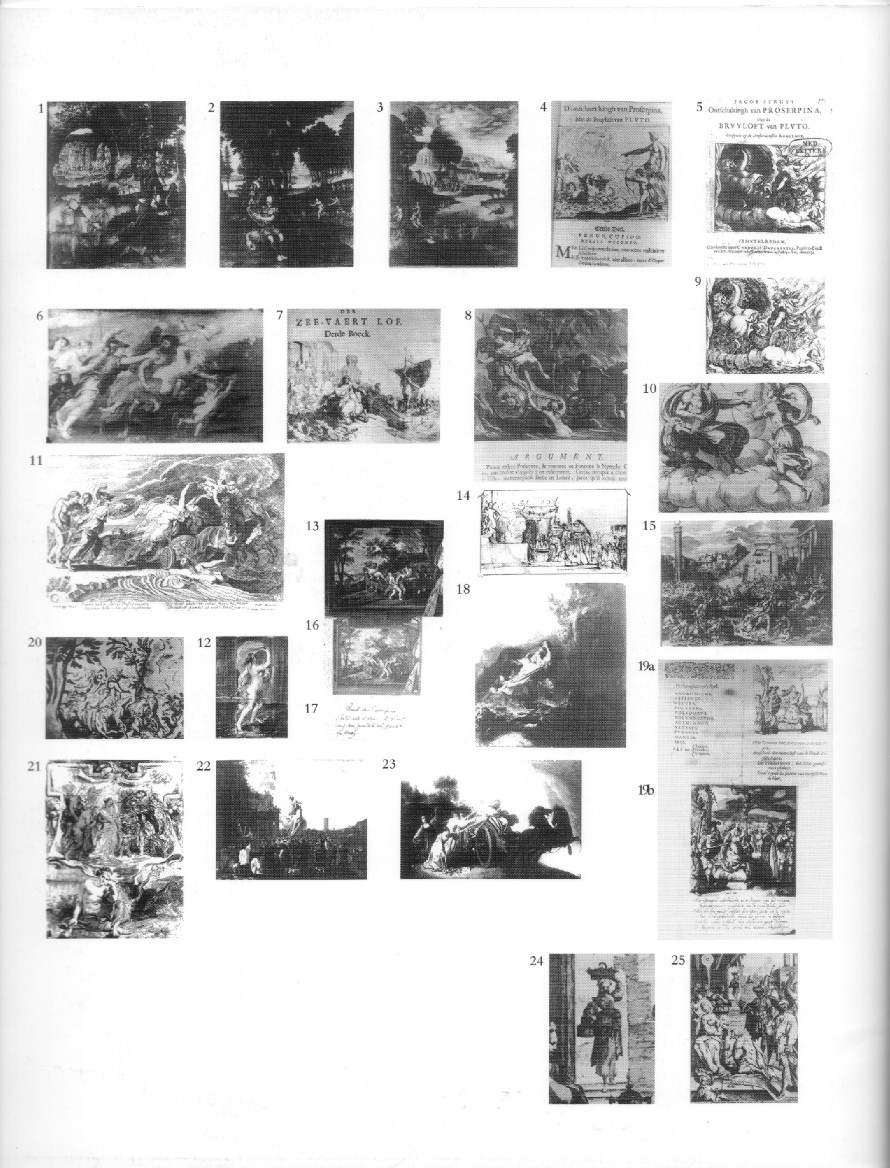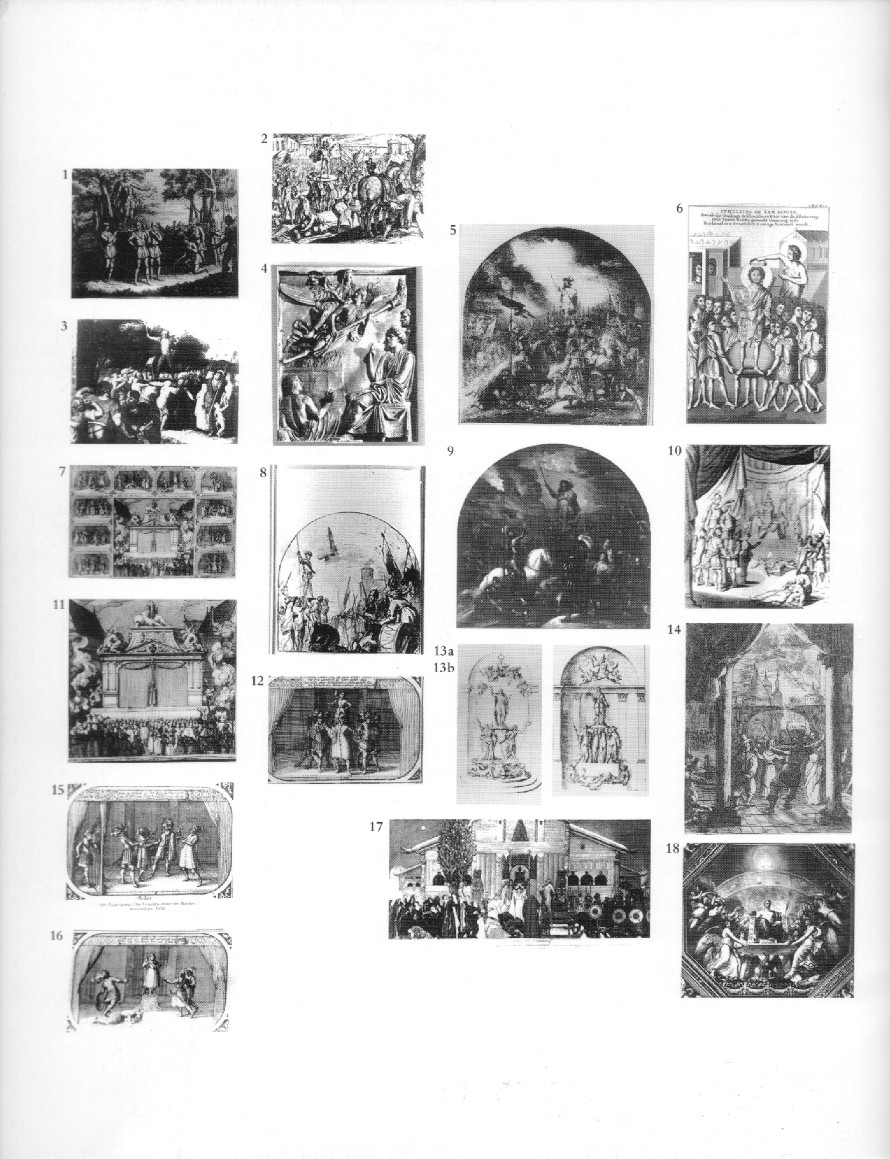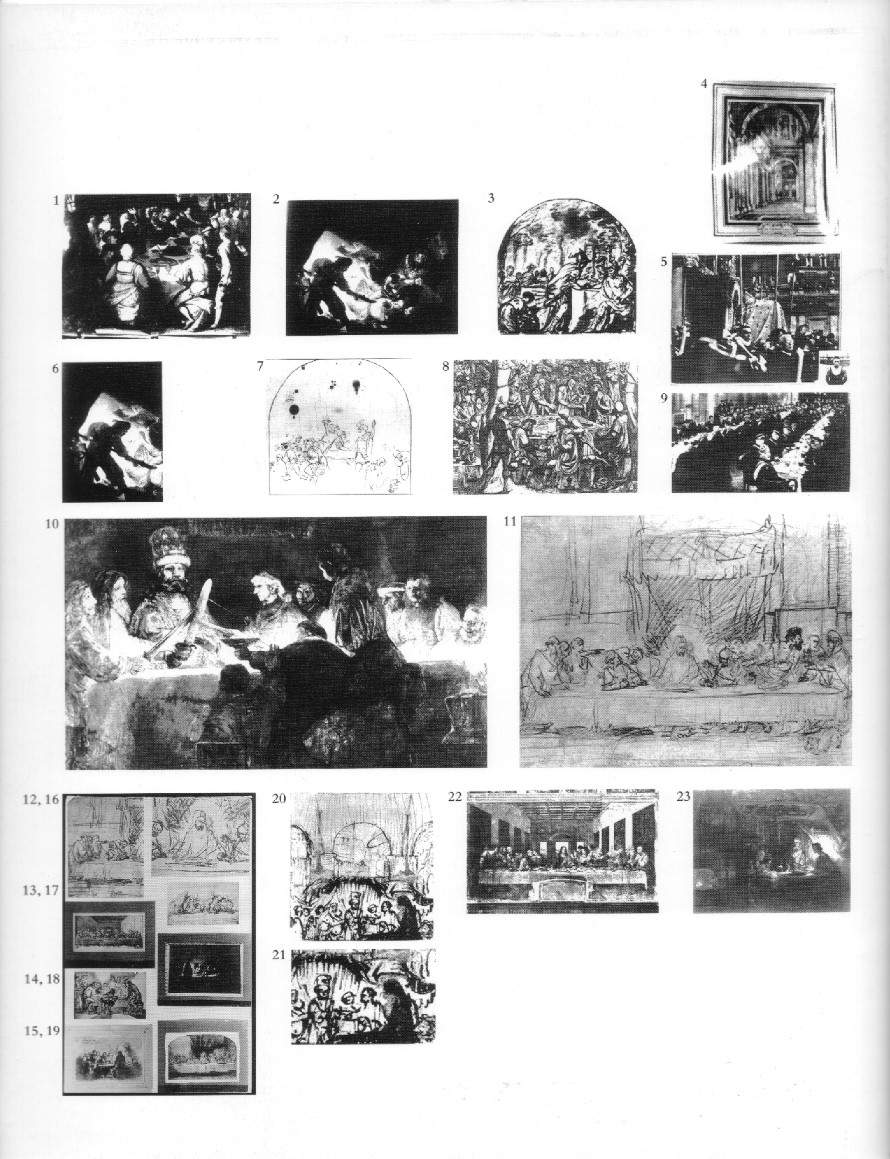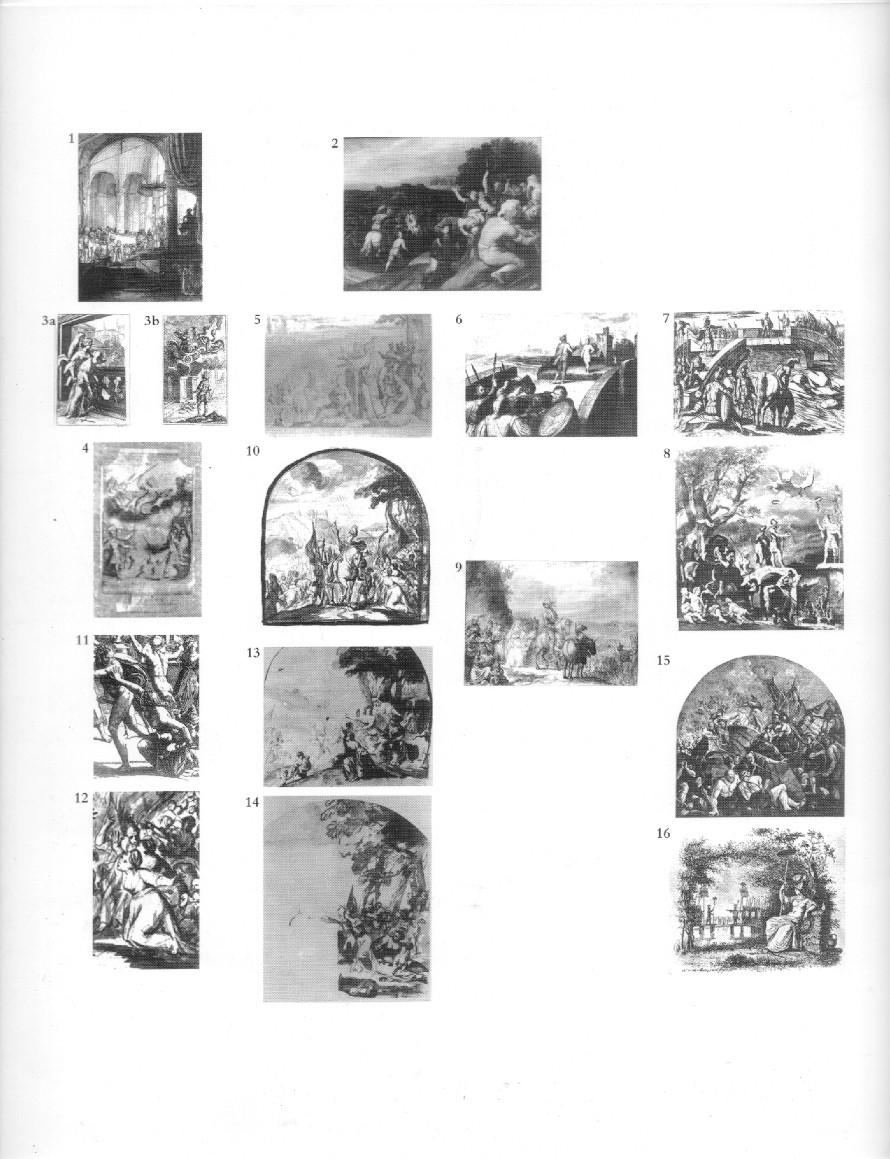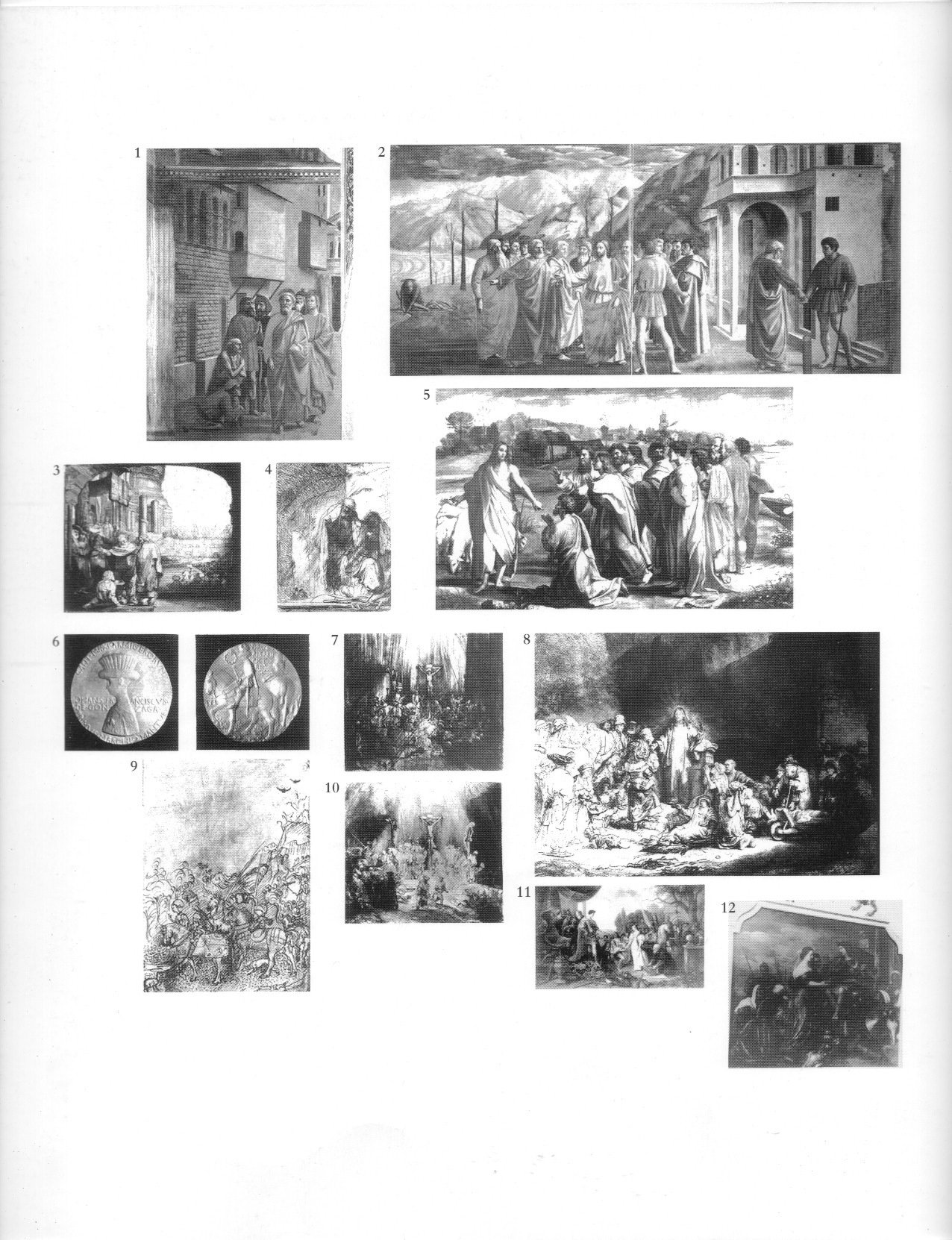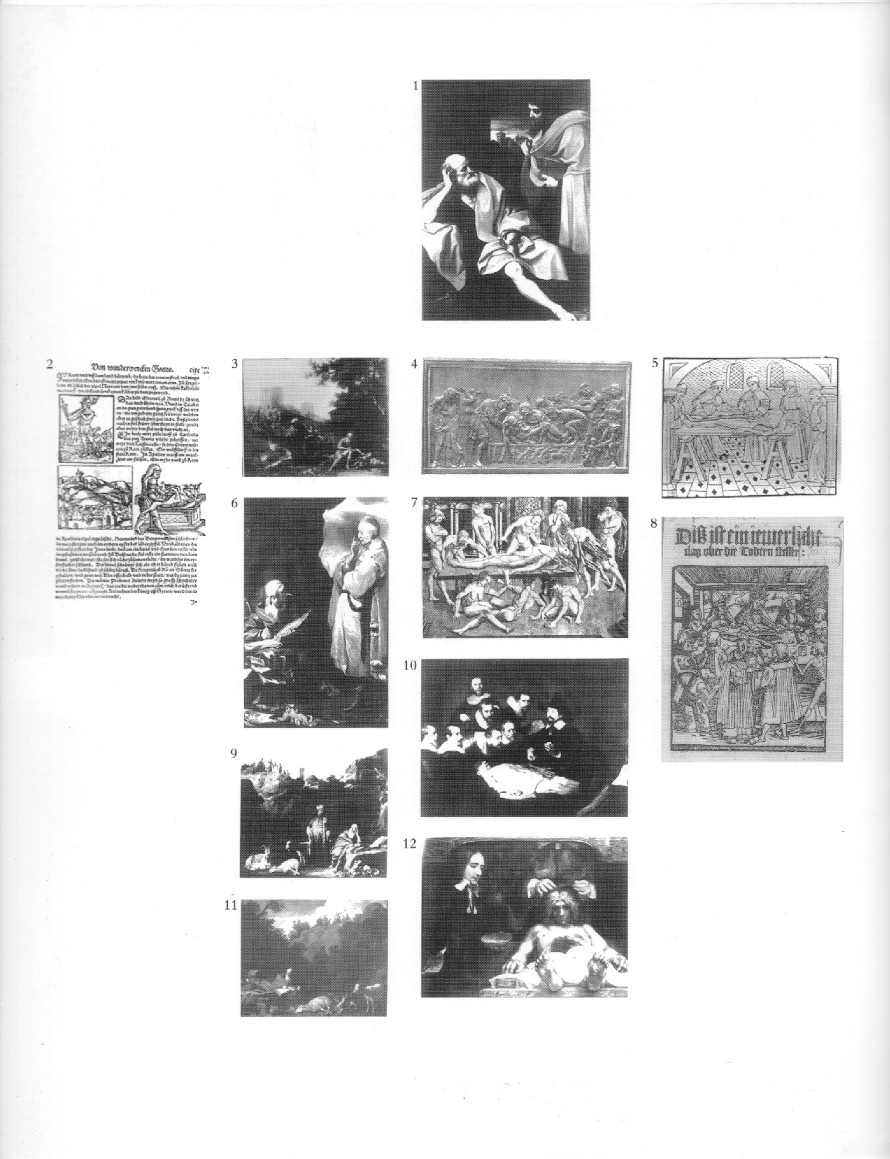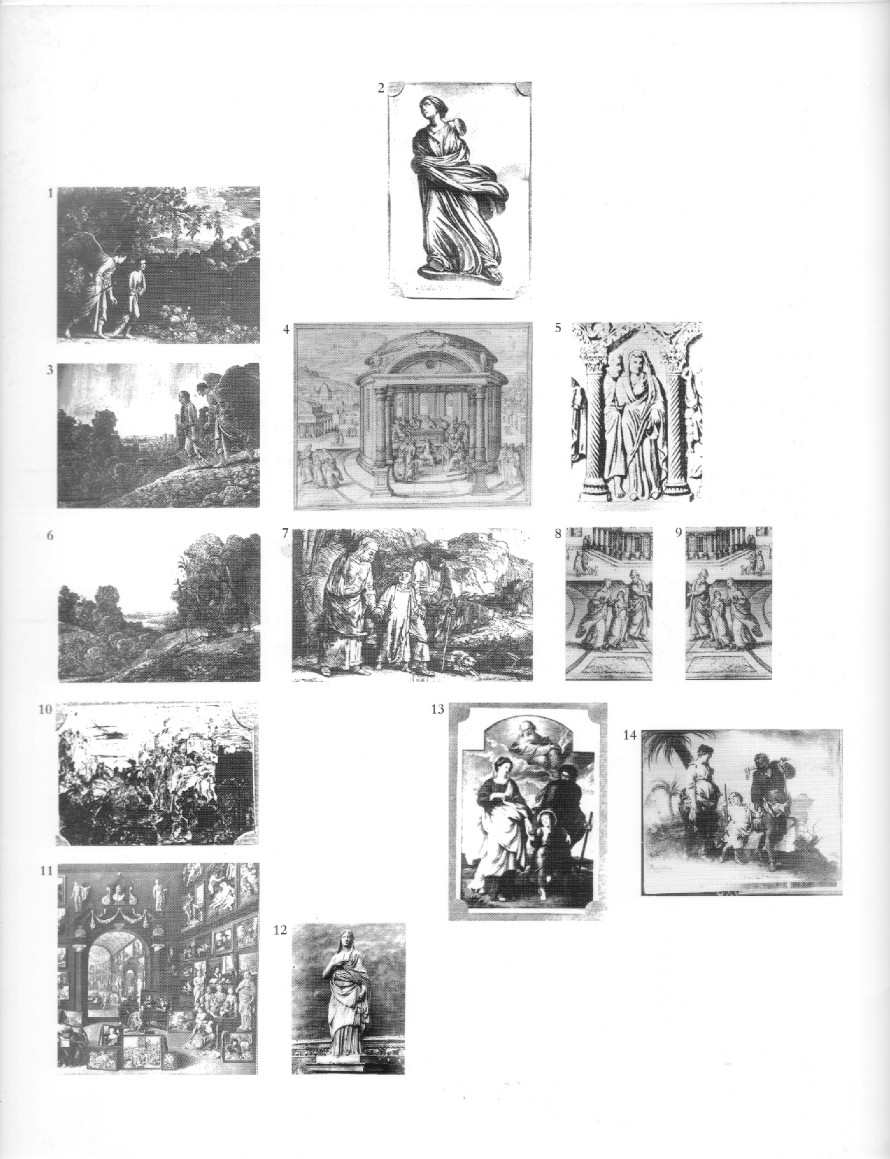PERCORSO XI (Tavole 70, 71, 72, 73, 74, 75, 76)
Arte ufficiale e pathos barocco
Drammatizzazione del mito: dalla scena del ratto al teatro anatomico (Rembrandt, Rubens)
Questo blocco di Tavole, che negli appunti di Warburg intitolato “Olanda”, segue le riemersioni e le sopravvivenze dell’Antico dopo il Rinascimento nell’Europa del Nord, tra la pompa patetica dell’arte ufficiale e lo stile antiretorico di Rembrandt. Il mito antico (il ratto di Proserpina) e i gesti rituali arcaici (apoteosi, elevazione, divinazione, compianto) nell’età barocca mettono in scena un linguaggio gestuale patetico. Allo stile magniloquente dell’art officiel e della carnalità esasperata di Rubens, si contrappone il linguaggio antiretorico di Rembrandt. L’artista presenta le scene antiche di rito sacrificale circonfuse da una luce interiore, che illumina la sospensione tragica che precede l’azione. Le tonalità dell’eccesso proprie del teatro barocco olandese sono rovesciate nella luce fredda e obituaria del teatro anatomico di Rembrandt.
PATHWAY XI (Panels 70, 71, 72, 73, 74, 75, 76)
Art officiel and Baroque pathos
Dramatisation of myth: from the rape scene to the anatomical theatre (Rembrandt, Rubens)
This group of panels, titled “Holland” in Warburg’s notes, depicts the reemergence of Antiquity in Northern Europe in the Baroque Era. It exists between the exaggerated rhetoric of official art, echoing the grandeur of Roman tradition, and the anti-rhetorical style of Rembrandt. Ancients myths and archaic ritual gestures are reinterpreted in the Baroque era through a dramatic gestural language. The magniloquent style of the Art officiel, contrasts sharply with Rembrandt’s approach, which not only accounts for the dynamics of real life but also incorporates philological and historical research. These two poles represent opposing forces in the struggle for the style of this century. The excesses typical of Dutch Baroque theatre are inverted in Rembrandt’s portrayal of inner suspesion between impulse and action.


